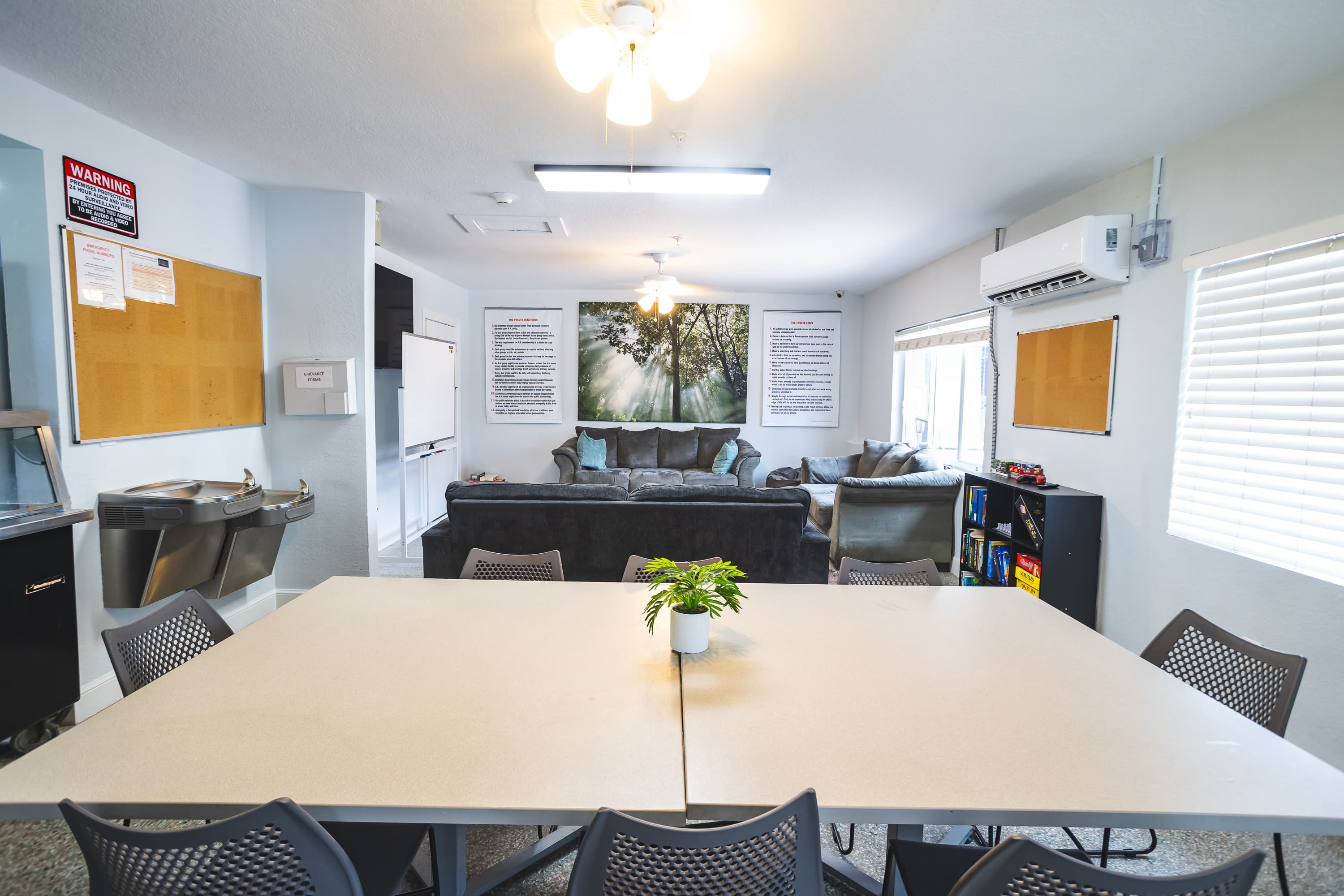Loading...
Loading...
Healing Through Shared Experience
Group therapy harnesses the power of shared experience, providing peer support, accountability, and connection that are essential for lasting recovery.

Group therapy is a cornerstone of addiction treatment, bringing together individuals who share similar struggles in a safe, supportive environment. Led by trained therapists, these sessions provide opportunities for connection, learning, and growth that individual therapy alone cannot offer.
In group therapy, you discover that you are not alone in your struggles. Hearing others share their experiences, challenges, and victories creates a sense of belonging and reduces the shame and isolation that often accompany addiction.
At Amity Palm Beach in West Palm Beach, Florida, we offer various types of group therapy as part of our comprehensive treatment programs, recognizing that peer support is a powerful catalyst for lasting change.
Our group therapy sessions are structured to maximize healing while creating a safe space for vulnerability.
Groups begin with clear guidelines about confidentiality, respect, and participation to create a safe environment.
Members share their stories, struggles, and progress, building connection through honest communication.
Learn from peers who offer different perspectives and supportive feedback on your journey.
Practice new coping skills, communication techniques, and relapse prevention strategies together.
Develop lasting connections with peers who understand your journey and can support your recovery.

Find answers to common questions about group therapy and how it can support your recovery journey.
Group Therapy is integrated into our comprehensive treatment programs.
Learn about complementary approaches that work alongside group therapy.
Experience the transformative power of peer support. Our skilled group facilitators create safe spaces where healing happens through connection.
Confidential. Compassionate. Available when you need us.